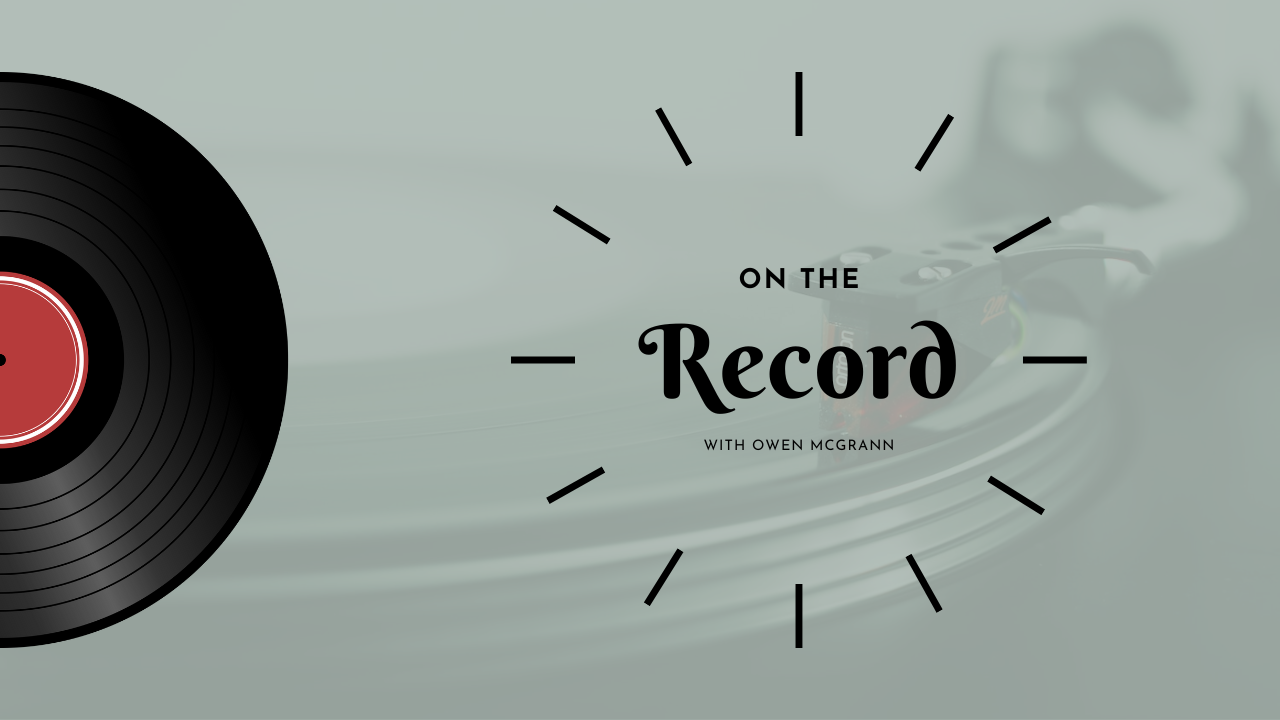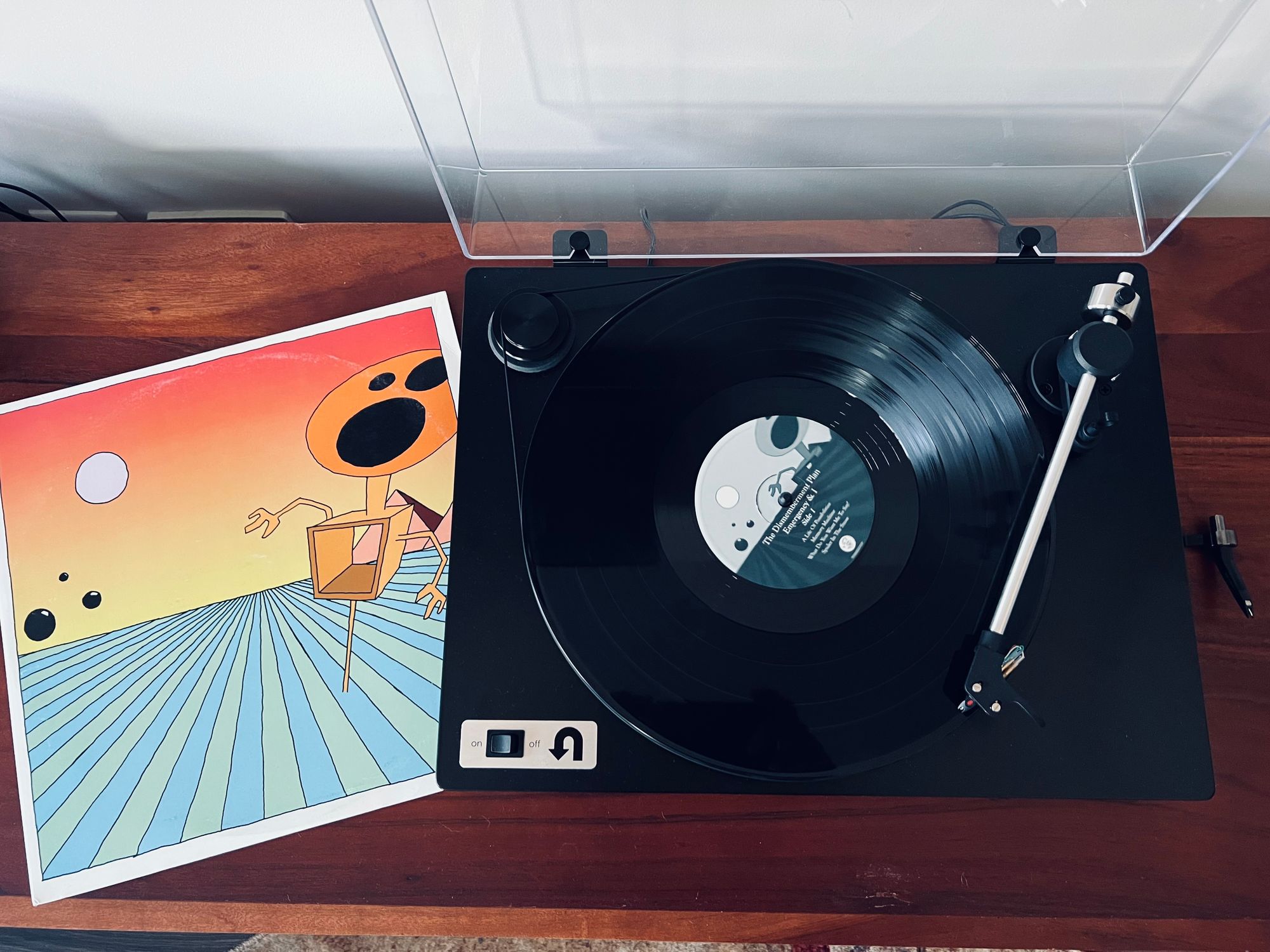OTR, Take 33: Dismemberment Plan - Emergency & I

(Here's the link to today's album for my email folks, and below is the embed for my website folks.)
You never quite know who you're reaching when you let loose your words on these here interwebs. It's one of the things I find so fascinating about small-scale public writing today versus large-scale public writing at basically any point: the relationship between reader and writer is drastically different, and (if we are being honest and/or paying attention) it changes the way we write.
When Joan Didion, H.L Mencken, or Jeremy Bentham published essays or books, it was at a remove from their day-to-day lives. They may have received mail about their work, or run into someone who had read it, but they didn't publish and open the floodgates to immediate responses. When I post on LinkedIn or send out OTR, I try to post thoughts and provocations that invite thinking and response; and respond people do, in real-time. It becomes a conversation. This is wonderful, as it engenders deeper thinking on my part about what I'd written and a sense of community.
But it makes it very easy to forget that most everybody who reads the post doesn't engage with it. On average, somewhere between 2,500 and 7,000 people see and read at least part of my posts. That doesn't seem like a ton, but that sells out almost all music venues you've ever been to. And what gets distorted in my mind is that, because I have regulars who are gracious enough to engage with my posts all the time, I tend to think they're the only ones reading.
They're not. Not even close. At my brother's wedding, eleven people approached me, who had never once commented on or reacted to a single post, and told me they read my LinkedIn posts and On the Record. A guy I have never met before knew who I was when a friend introduced me because he'd read my posts. And, no joke, two weeks ago, a lawyer who I know a little bit but never really spoke with yelled "Fuck the billable hour!" at me from across a room full of kids while holding his fist aloft....and I guess I'm happy I have my branding down?
You never know who's reading you, so if you post online and develop something of a following (even a tiny one, like mine), remember that you're not just reaching the handful of people who engage with your writing. There are factors more paying attention, so please be kind, generous, and gracious.
Now, on to the main show.

Last time around, we explored Jimmy Eat World's Clarity and I spoke about introducing my brother Neill to the album and band. As I do any time I write about somebody in OTR, I ran the piece by him before I hit publish and he had only one suggestion: next edition, I ought to write about an album or band that he introduced me to. That's a damned fine idea, I said, and here we are, back again to take a look at Dismemberment Plan's opus, Emergency & I.
I wrote a bit about Emergency & I back before On the Record became a newsletter. I don't remember what I said about it, other than that Kelly Clarkson owes the D Plan some serious royalties. Seriously: there's not simply a resemblance, there's an exact replication of the hook of The City on Since U Been Gone. My recollection of Travis Morrison's (lead singer/guitarist of D Plan) response to being asked about the resmblance is that he said, she can have it. Which, okay. I suppose that's the reaction of a man who has moved on from making a living playing music.
One of the things that fascinates me about indie bands that make a bunch of great music and then slide into "obscurity" is that, you know, they keep on living. They go on to be things like lawyers (quelle catastrophe!), realtors, doulas, therapists, etc. Almost none of them make enough money to live on, let alone retire on: music is a cruel business and, while these "normal" jobs seem boring in comparison, they're often a welcome respite after fighting for a decade to make it. Still, there's gotta be a sense, as you're filling a cavity or rolling over a 401k, that there's a secret part of you hiding in wait. In fact, D Plan has a song on their reunion album that alludes to this past-life duality called "Daddy Was a Real Good Dancer."
The older I get, the more I wonder how many lives people are secreting away behind whatever disguise they're wearing now.
In college, I worked as a DJ at the school radio station. (I was on air as the first plane hit the World Trade Center on September 11, but that's a story to tell when I get around to writing about Jimmy Eat World's Bleed American.) Back then, radio stations were stuffed full with CDs and records, just overflowing with new music record companies would send in an attempt to get us to play their new offerings. Sometimes I wonder how much has changed at the station: 91.1 WDUB, the Doobie. I doubt they're sent many CDs these days.
You would think this would be a great way to be introduced to new music; after all, all the cool new indie music was sent to us, right? The problem is I had only 4 to 6 hours a week on air, and for the most part, I wanted to play specific music. It wasn't very often that I'd randomly pick up a CD and spin a song. I mean, hell: I had a reputation to uphold, I couldn't be playing bad music!
But the DJs talked to each other about new stuff that was being released, music we were excited about, etc. One band that came up a few times was Dismemberment Plan. It came up enough that I went seeking the CDs the station had so I could rip them (remember those days?). But the only D Plan CD the station had is one called A Peoples History of the Dismemberment Plan, which was a fascinating experiment (the band made public the master recordings of their albums and invited fans to remix the tracks, selected an album's worth they liked best, and released it) if not a great introduction to the band. I listened to a little bit of it, but...meh.
So it wasn't until a few years later, when I was home from grad school, that I got my first proper introduction to the band. My brother Neill had left his big folder of CDs (remember those?) on the table in the family room and I was flipping through looking for new music when I ran across a burned disc that, in Neill's barely legible script, read Emergency & I.
I was about halfway through listening to Emergency & I when Neill got home from school. "You Are Invited" was playing over my dad's stereo.
Neill came in and started saying something about the album and I motioned him to sit with me. I was transfixed. "You Are Invited" is a story, a parable, in a song, in which the narrator gets a magical invitation in the mail that reads:
You are invited
By anyone do to anything
You are invited for all time
So he uses the invitation to get into a disco I couldn't get into in a million years and, on his way home, crashes a party at his ex's, who invites him with smiles all up and down and introduces him to everybody.
You are so needed
By everyone to do everything
You are invited for all time
The song ends with the narrator returning home and finding his neighbor sobbing because he didn't go to some party. The narrator throws the magical invitation at his neighbors feet and ends the song:
You are invited
By anyone to do anything
You are invited for all time
You are so needed
If you really want to go
You are invited for all time
For all time
It is such a simple song, such a ridiculous premise...and yet, it contains a powerful notion of our need for connection and acceptance. Something primal, a deep yearning. And – and – he gives away the invitation.
I can't tell you how many times I've pondered the end of that song, the unflinching generosity of the moment.
Neill and I listened to the rest of the album in near silence. It is a perfect album, an album that would make it to the island with me if I had to narrow them down.
Nobody sounds like the D Plan, and yet you can hear influences peeking out at the edges: Talking Heads, the DC bands of the 90s (Fugazi, especially), Gang of Four, Brainiac, etc. They somehow embody what came before them and sound utterly unique.
I could write 3,000 more words about Emergency & I (I won't!), but there are tracks on this albm that have caused epigenetic shifts in my DNA, fundamentally changing who I am as a person. "A Life of Possibilities" is a philosophy unto itself. "The Jitters" is a better Radiohead song than most Thom & co have written. Can we talk about the use of keyboards on this album? They're not so much played as manipulated, coerced into making noises that keyboards aren't designed to make.
I can't speak highly enough of this album and I implore you to give it a listen or fifty. It's sinewy and profound and earthy all at once.
Thanks, brother. Hope your honeymoon is amazing!